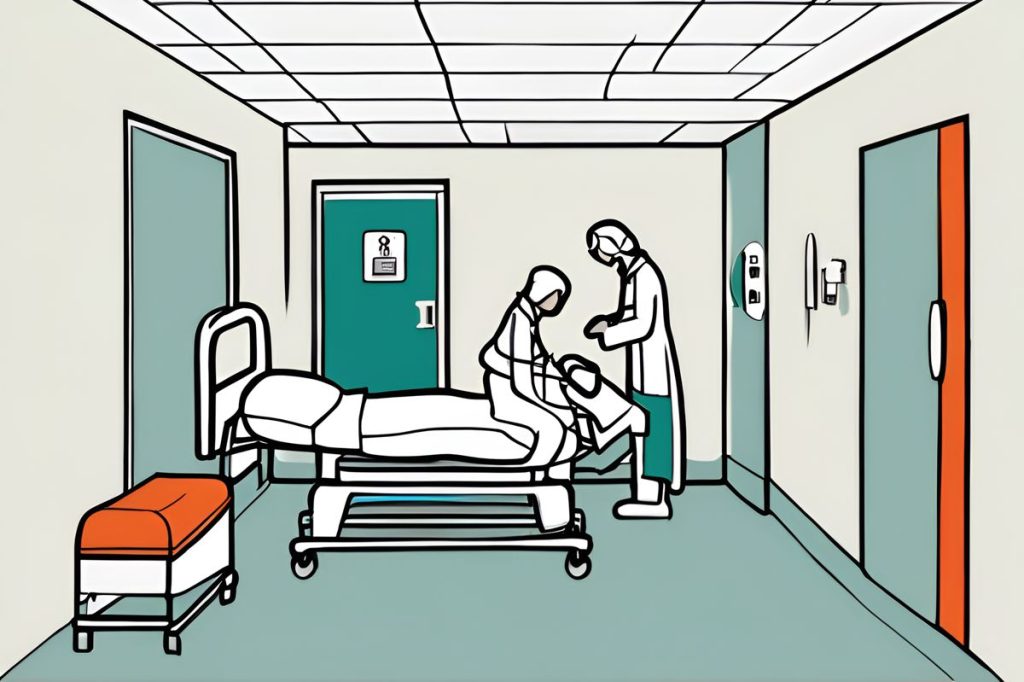Urgent action is needed to improve liver transplant patient care in Cyprus, including securing hospital beds at Nicosia General Hospital’s transplant clinic and training Cypriot doctors at international medical centers. The shortage of hepatology specialists and delays in establishing healthcare policies are hindering the country’s ability to provide adequate care for around 200 liver transplant patients.
What urgent actions are needed for liver transplant patient care in Cyprus?
To improve liver transplant patient care in Cyprus, urgent actions needed include: securing hospital beds at the Nicosia General Hospital’s transplant clinic, providing better post-operative support, and training Cypriot doctors at international medical centers. Additionally, it’s vital to address the shortage of hepatology specialists and establish effective healthcare policies.
Call for Improved Hospital and Post-Operative Services
Concerns have been raised by members of the House health committee regarding the adequacy of care for liver transplant patients in Cyprus. During a session on Thursday, these MPs urged the state health services organisation (Okypy) and the health ministry to take swift action. Specifically, they highlighted the urgent need for better hospitalisation and post-operative support for these patients. The focus is to secure beds at the Nicosia General Hospital’s transplant clinic, which is essential for their recovery process.
The committee has requested timely updates on two critical aspects: the immediate accommodation possibilities for liver transplant patients and, within a month, the progress of training Cypriot doctors at international medical centers. These trained doctors are expected to bring back valuable expertise required for the effective treatment of such patients. With around 200 liver transplant patients in Cyprus needing continuous monitoring, the situation calls for immediate attention.
Training and Recruitment Challenges
The meeting brought to light not only the existing needs but also the obstacles faced in improving liver transplant care. For example, despite the announcement of actions to establish a dedicated hepatology clinic in 2022, significant delays have jeopardized these plans. Furthermore, the lack of interest shown in recent job advertisements for specialists in hepatology underlines a worrying trend. In December, when positions were advertised, there was no expression of interest, hinting at a possible shortage of specialists in this critical field of medicine.
This shortfall in specialist recruitment impacts the care that patients can receive domestically. Training programs abroad are crucial, as they can help bridge the gap by enabling local doctors to specialize and meet the country’s healthcare demands.
The Role of Patient Associations and Journalists
Patient associations play a pivotal role in advocating for the needs and rights of individuals with specific health conditions. The Association of Liver Patients, as represented by Journalist Stavros Kyprianou, is one such body voicing the concerns and challenges faced by liver transplant patients in Cyprus. Their involvement ensures that patient care remains a priority on the health agenda and brings attention to the delays and inaction that can occur within bureaucratic systems.
Journalists like Kyprianou, who dedicate their careers to covering diverse topics such as politics, crime, and social issues, are instrumental in bringing these matters to light. Their reports help hold responsible parties accountable and drive the conversation forward, making a case for the urgency and importance of addressing healthcare deficiencies.
The Need for Effective Healthcare Policies
The demands made by the health committee emphasize the necessity for a robust healthcare system that can accommodate the complexities of liver transplant patient care. It’s not just about having the infrastructure in place but also ensuring that there is a capable workforce to operate it. The government’s role in fostering an environment where medical professionals are encouraged to specialize in fields like hepatology cannot be overstated.
As the MPs wait for updates on the situation, the lives of liver transplant patients hang in the balance. It’s a race against time to implement the changes needed to provide the level of care these patients deserve. The healthcare system’s ability to respond swiftly and effectively to such demands is a testament to its commitment to patient welfare and the overall quality of life in Cyprus.
What urgent actions are needed for liver transplant patient care in Cyprus?
To improve liver transplant patient care in Cyprus, urgent actions needed include: securing hospital beds at the Nicosia General Hospital’s transplant clinic, providing better post-operative support, and training Cypriot doctors at international medical centers. Additionally, it’s vital to address the shortage of hepatology specialists and establish effective healthcare policies.
What are the training and recruitment challenges faced in improving liver transplant care in Cyprus?
Despite plans to establish a dedicated hepatology clinic in 2022, delays and lack of interest in job advertisements for specialists in hepatology have hindered progress. Training programs abroad are essential to bridge the gap and ensure local doctors can specialize and meet the country’s healthcare demands.
How do patient associations and journalists play a role in advocating for liver transplant patient care in Cyprus?
Patient associations, such as the Association of Liver Patients, and journalists like Stavros Kyprianou, play a crucial role in advocating for the needs and rights of liver transplant patients. They bring attention to delays and inaction within bureaucratic systems, ensuring that patient care remains a priority on the health agenda.
Why is the need for effective healthcare policies essential in providing adequate care for liver transplant patients in Cyprus?
The demands made by the health committee highlight the necessity for a robust healthcare system that can accommodate the complexities of liver transplant patient care. Effective healthcare policies are crucial to ensuring there is a capable workforce and infrastructure in place to provide the level of care these patients deserve.

